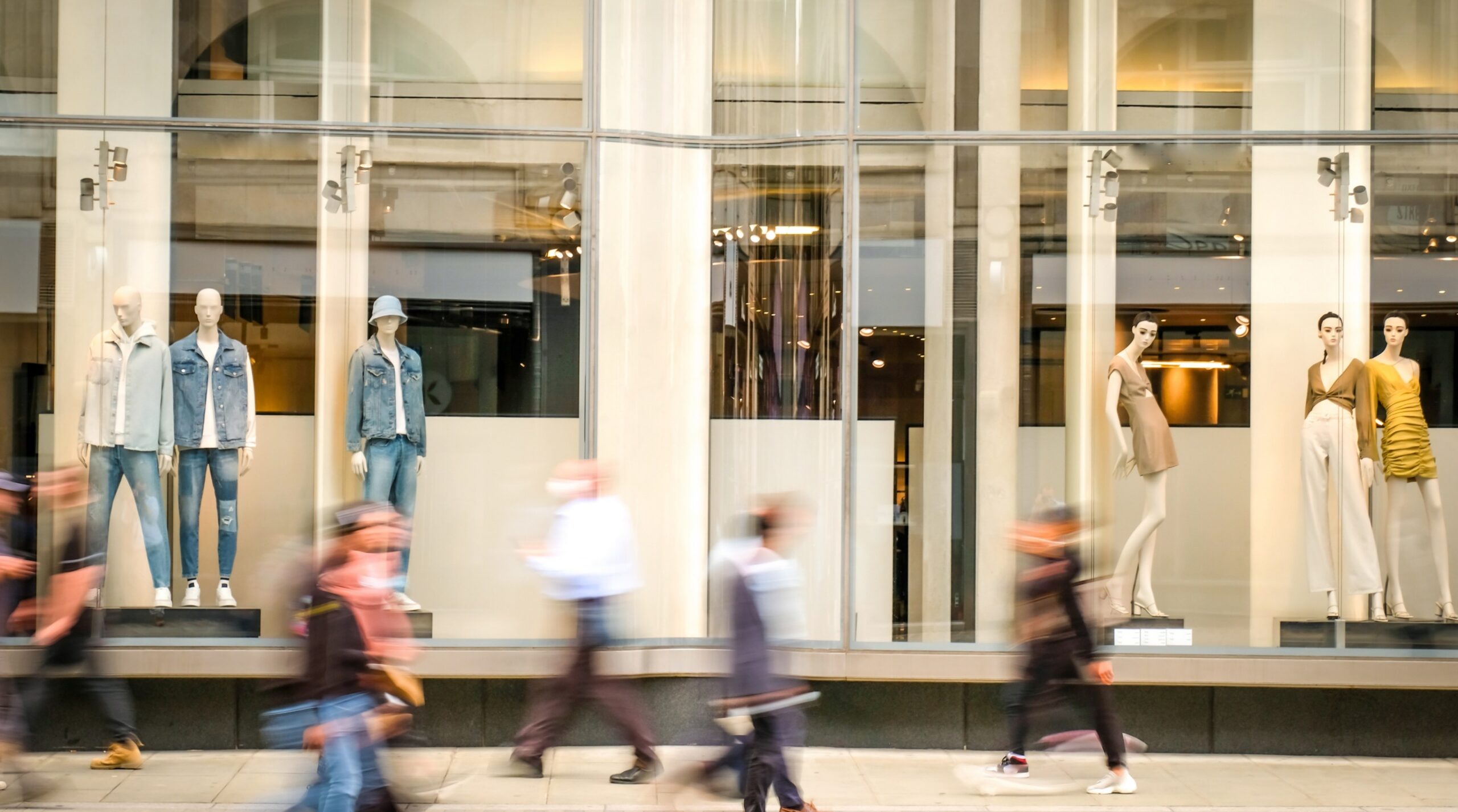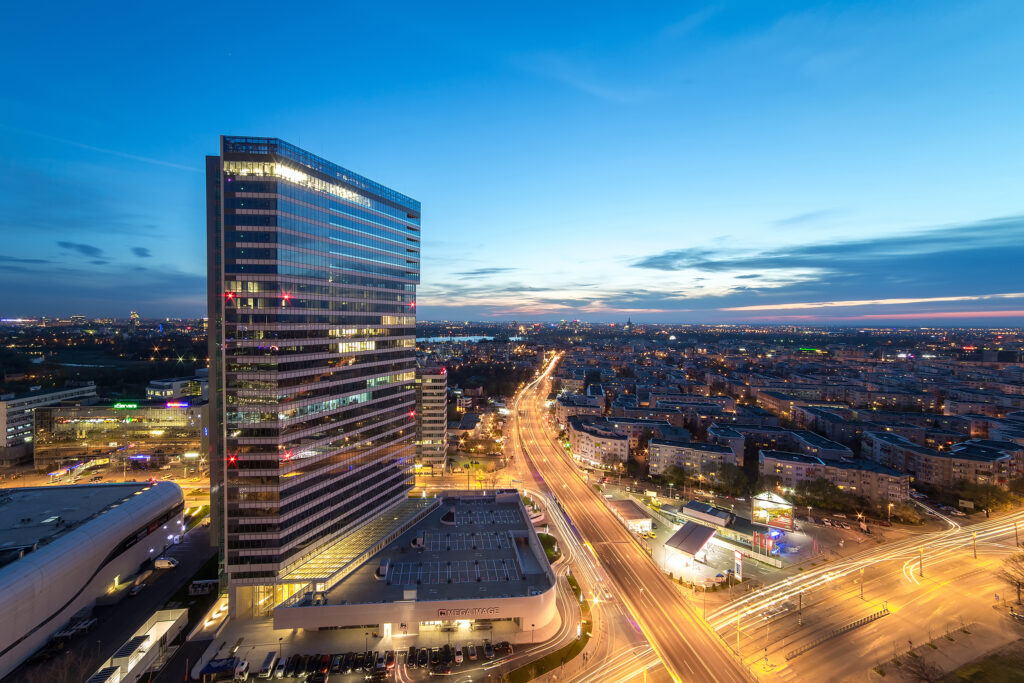Romanian Retail Snapshot 2025
Bucharest, April 2020: The decision of the authorities to temporarily suspend the purchase of goods considered non-essential from the shopping centers affects more than 9,000 stores and each day when they are closed equals with between 15 and 20 million euros lost from unearned income, according to an analysis made by the real estate consulting company Cushman & Wakefield Echinox.
The military ordinance issued in the context of the Covid-19 pandemic makes an exception for suspending the stores that mainly sell food, electronic, pharmaceutical and pet shop products, as well as cleaning and optical services.
The modern retail stock (malls, retail parks and commercial galleries) in Romania sums up about 3.9 million square meters, of which 23% is represented by supermarkets and hypermarkets, the main category of stores that remain open, according to Cushman & Wakefield Echinox data. The estimated unearned income takes into account an average level of sales in a normal activity timeframe for a shopping center, at around 2,000 euros / sqm / year respectively.
In the international social and financial context, for each day of non-operating stores, the big retailers and the fashion houses with tradition have started to seriously get involved in the fight against the spread of virus, in order to reopen their stores sooner. The largest retail groups, such as LVMH or L’Oreal, have started the production of disinfectants, while H&M or Inditex reoriented towards the production of medical equipment for protection. As this happens, at the moment the fashion and beauty retailers have huge stocks of unsold products. Suspending the program for the fashion week or the 2020 autumn-winter collection launching events is unprecedented and the market must adapt to it.
 Bogdan Marcu, Partner Retail Agency, Cushman & Wakefield Echinox: “Unlike the well-known companies, such as LVMH, L’Oreal, H&M or Inditex, many other international and local retailers will struggle to survive in this unprecedented context. The global interconnection has never felt so real, from the emotional state of mind, up to the economic and financial concerns. The solution we see relies on a dialogue between all the players of the industry, banks, retailers, owners of commercial spaces and shopping centers and the state institutions. Retail has an essential role in today’s modern social space and will have an important role in the revival of economy, which is why it needs sustained support during this period.”
Bogdan Marcu, Partner Retail Agency, Cushman & Wakefield Echinox: “Unlike the well-known companies, such as LVMH, L’Oreal, H&M or Inditex, many other international and local retailers will struggle to survive in this unprecedented context. The global interconnection has never felt so real, from the emotional state of mind, up to the economic and financial concerns. The solution we see relies on a dialogue between all the players of the industry, banks, retailers, owners of commercial spaces and shopping centers and the state institutions. Retail has an essential role in today’s modern social space and will have an important role in the revival of economy, which is why it needs sustained support during this period.”
Compared to the previous crisis, social distancing produces psychological and behavioral effects. To paraphrase John Donne, “No man is an island”, when the imposed restrictions will be more relaxed, people will want to return to normality and to socialize, out of the need of community, within which they can evolve and feel truly fulfilled, consider the Cushman & Wakefield Echinox consultants. Now is the moment when the collaboration has to become the essential part in the daily business and social interactions and people must understand the necessity of the entire society survival.
We also see a wave of solidarity not only in the western countries, but also in Romania, regarding local entrepreneurs and small businesses that need sustained support to be able to withstand and continue their activity after this period. Major donations made promptly by a receptive and empathic population represent a sign of civilization and solidarity towards the actual social and economic environment.
On the other hand, depending on how it will succeed in managing the large volume of current demands, the online commerce could become a long-term winning segment, by preserving a significant share of the retail market gained throughout this period. While online commerce for luxury (or non-essential) products has dropped dramatically over the past month, retailers operating food and home products that were already ready for online operations have gained the momentum.
Bogdan Marcu, Partner Retail Agency, Cushman & Wakefield Echinox: “Apart from the food, pharmaceutical, maintenance and pet shop products, online commerce is currently the only option for consumers. Thus, depending on how long the social distancing will last, it is possible that the habit of ordering from the home comfort to change the way people purchase products in the future, especially food or other common products.”
Cushman & Wakefield Echinox is a top leading consulting company on the local market and the exclusive affiliate of Cushman & Wakefield in Romania, owned and operated independently. The team of over 60 professionals and collaborators offers a full range of services to investors, developers, owners and tenants in all segments of the real estate market.
Cushman & Wakefield, one of the global leaders in commercial real estate services, with 53,000 employees in over 60 countries and € 8.8 billion in revenue, provides asset and investment management consulting services, capital markets, leasing, administration properties, tenant representation, design and evaluation services. For more information, visit www.cwechinox.com





